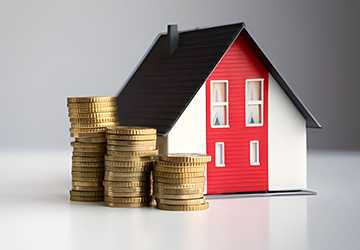How to Calculate Your Home's Market Value
Estimating the market value of your home is a task you should pay attention to if you are planning to sell, refinance, or are simply curious about its worth. Though it may appear complicated, it's possible with a suitable strategy. This guide provides some helpful information to help you move from high school to college with excitement. From comparing with other properties to analyzing location factors and evaluating your home's condition, each step will give you a good idea of your property's value. Following these tips, you will be empowered to make informed choices and acquire the know-how to deal with the shifting dynamics of the real estate sector. Let's dive in!

Top Tips to Evaluate a Home's Market Value
Getting a valuation of your home may seem challenging, but please do not panic! With some expertise and a couple of practical pointers, you can have a pretty good idea of how much your modest home is worth in the current real estate market. Here are some straightforward tips to guide you through the process:
1. Research Comparable Properties
Start with investigating the properties sold recently in your neighbourhood to get an idea of how your house compares to the market. Go for homes with duplicate square footage, bedrooms, bathroom numbers, and the same features. Websites such as Zillow, Redfin, or Realtor, to name a few, allow users to browse through listings, see property details, and even compare similar homes in the area. E-commerce can be a source to you for the recent sales reports. Give complete attention to homes like yours for the most precise comparison.
2. Consider Location Factors
The most important thing is the location, location, location! It's not just a famous phrase; it's the most critical reason your home value will be high. Think of the amenities and attractions in your district, like schools, parks, shopping malls, and public transport. A desirable location is usually linked with higher prices in terms of property. On the contrary, if your house is in a neighbourhood with serious crime issues or bad schools, it might negatively affect its value.
3. Assess Your Home's Condition
Pay attention to the condition of your house. Do you need to make any big fixes or improvements? Is the interior in the past style, or is it fresh with the current finishing? Assessing the condition of your home will indicate its value for sale in the market. Remember that homes that are well-kept and have updates tend to be sold at a higher price than those that need extensive repairs.
4. Consult with Real Estate Professionals
Other times, seeking advice from those with knowledge and experience can be wise. Involve local real estate agents or appraisers who are familiar with your local market to get some insights. They can be of great help in providing you with relevant information and assisting you to get acquainted with the market dynamics and pricing effects. You may have to pay for their professional skills. Still, the experience they provide is likely well worth the money, particularly when it comes to correctly assessing your property.
5. Use Online Valuation Tools with Caution
Online valuation tools today can give you a rough estimate of your home's value and provide you with an automated valuation model (AVM) using public data. Although they can be an excellent starting point for an investigation, they are only sometimes reliable. Variables, such as new facilities or one-of-a-kind amenities, may need to be considered in their estimations. Be aware of the risk and use online valuation tools to find market value; it is not the only way.

6. Factor in Market Trends
Monitoring the market trends constantly is a critical factor in getting to know the principles of the real estate market. For example, if it's a buyer's market, where there is a shortage of homes for sale and many buyers, it would be harder to negotiate the prices. On one hand, a buyer's market where demand is low and supply is high may give you less room to negotiate higher prices. On the other hand, in a seller's market with high demand and insufficient supply, you might have a better chance to price your home competitively.
7. Account for Unique Features
Distinguishing property characteristics is the key to raising home values. If you have a breathtaking view, customized features, or eco-friendly upgrades, it will be easier for you to get higher price tags than others. Home shoppers frequently pay a premium for houses with unique qualities matching the owner's choice and lifestyle.
8. Evaluate Local Economic Condition
The local economic condition is the main factor controlling the demand for housing and the house price. Factors including the number of jobs, large construction projects, and investments in community facilities increase the desirability of your neighbourhood. Whether it's a rise or fall in employment rates, unemployment rates, or consumer spending, patterns can help you predict the future value of your home.
Conclusion
Estimating a home's market value is complex and involves assessing many parameters. The ten tips in this guide can be your confidence builder and provide undisputed clarity in the valuation process. From seeking comparable properties to analyzing the local economic conditions and exploiting your home's unique features, each step is essential to appraising your home value.